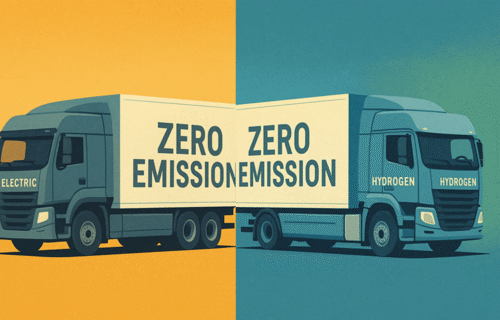A new study from the German Institute for Economic Research (DIW Berlin) and the Institute for Energy and Environmental Research Heidelberg (ifeu) concludes that Germany’s current greenhouse gas reduction quota (GHG quota) creates uneven incentives for zero-emission heavy vehicles, favouring hydrogen fuel cell trucks over battery-electric models.
The GHG quota requires fuel suppliers to reduce emissions from the fuels they place on the market and allows them to meet targets by supporting the use of alternative drive systems. According to the DIW/ifeu analysis, the quota methodology currently overestimates the emissions associated with power supplied to battery-electric trucks and underestimates their efficiency advantages. In addition, the system applies flat-rate mileage assumptions that do not reflect the typical use of heavy battery trucks, resulting in a lower calculated emission reduction compared to hydrogen vehicles.
The report notes that battery-electric trucks have recently recorded the strongest growth in the German heavy-duty segment and represent the most energy-efficient option for decarbonising freight transport. However, under the current quota mechanism, fuel cell trucks receive a greater quota benefit, which could influence fleet investment decisions.
The authors recommend a short-term adjustment of default electricity emissions and consumption assumptions, followed by a broader reform to ensure that the quota accurately reflects real energy efficiency and climate impact.
